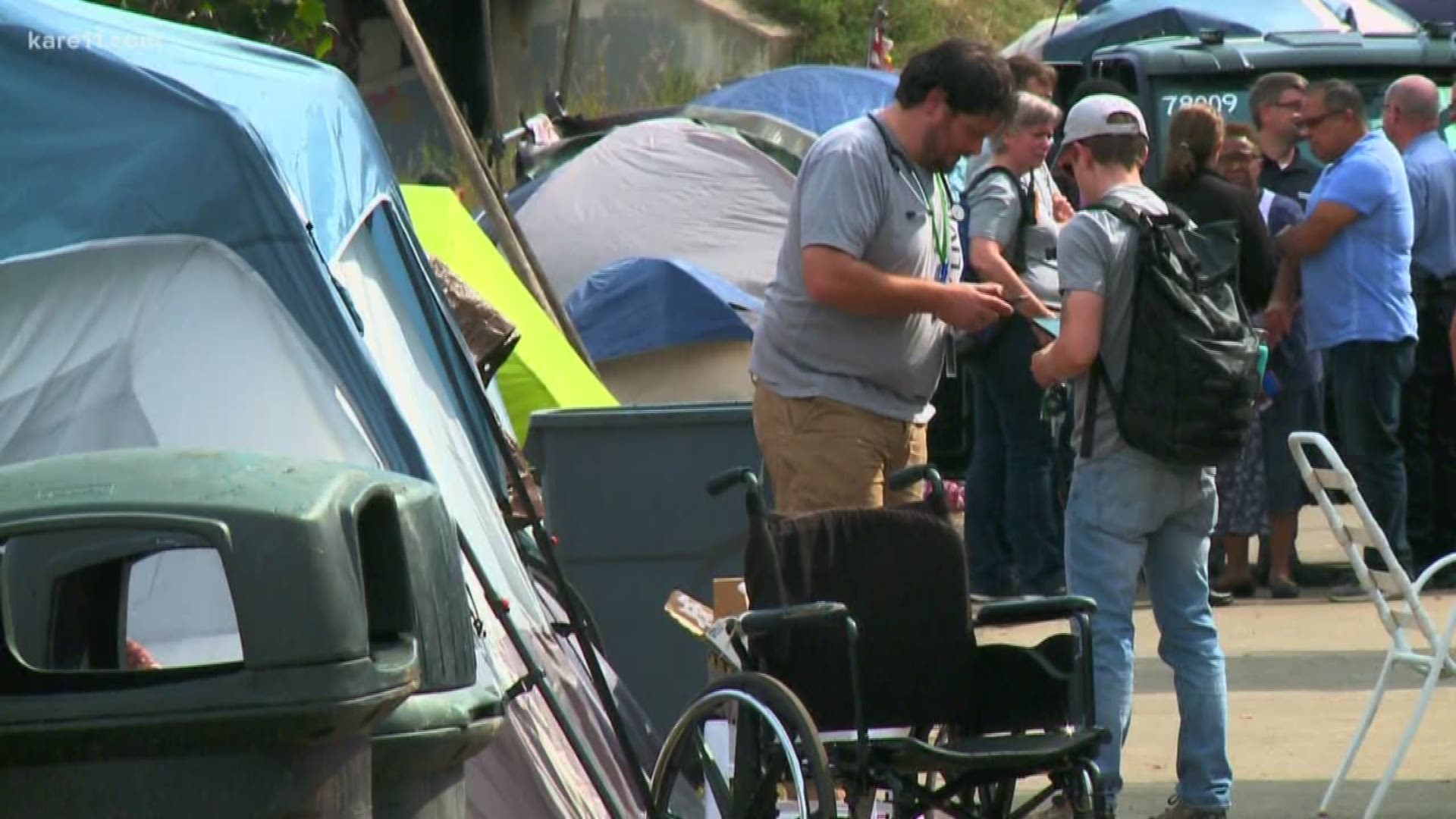MINNEAPOLIS - City leaders are pushing back a deadline for relocating a homeless encampment near Hiawatha and Franklin Avenues.
Hopes for a solution by the end of September are now considered unrealistic as tents multiply and health concerns grow.
A coalition of city and Native American stakeholders is now hoping to have a new emergency shelter in place in early October, which could help provide protection from the cold and connection to transitional housing services and drug treatment options.
Serena Morris moved into a tent in the area last month. She says many in the area have health issues or drug addiction that need to be addressed.
"I had to save some girl the other night with Narcan," said Serena Morris. "I had to use to bottles on her. It was hard."
Morris says things got a bit better Monday. The Red Lake Band of Chippewa Indians partnered with the Native American Community Clinic to help bring nurse practitioners into the encampment. The medical teams, with Livio Health Group, will maintain a presence in the area, in hopes of bringing care to people who are often hesitant to leave their belongings.
"The logistics of just getting the care that people need is, candidly, what we're trying to assess now," said Tad Piper, CEO of Livio. "When we started talking to them there were probably 200 people here. Now there are closer to 300."
But responding to that growth has also grown more complicated. Efforts to provide food, clean restrooms and even a hygiene center with clean showers, have been critical to improving life at the camp. But the efforts have also led to some misconceptions.
"There are people out here that have houses, they think that if you come out here and have a tent, put up a tent, that they're going to give housing for free," Morris said. "That's what the rumor that was going around."
"Yes, people have left housing to come here, thinking that there would be a quicker avenue to get some place, which is not true," said Michael Goze, with the American Indian Community Development Corporation (AICDC).
Goze says what is true is the AICDC is using a large nearby tent to connect people with housing and drug treatment options. He says they're also close to buying the Kateri Residence, a former women's shelter, which could soon provide relief for single mothers and their kids.
"We're hoping to close Oct. 1 and we hope to have people in there as soon as we get our rental license after that," Goze said.
Meanwhile, the city is finalizing plans for a large emergency relocation effort. The plan would utilize either large, heated tents with bunks, or FEMA-style trailers for temporary shelter as community leaders help them navigate other options.
The two locations under consideration include a grass lot at 26th and Minnehaha or the old Roof Depot at 28th and Longfellow.
"That would be the ideal location," said Dr. Antony Stately, CEO of Native American Community Clinic. "For a temporary solution through the winter, while we figure out a longer term solution."

